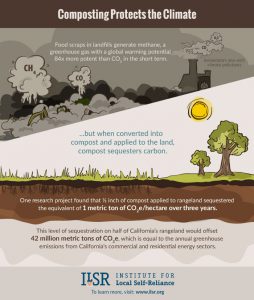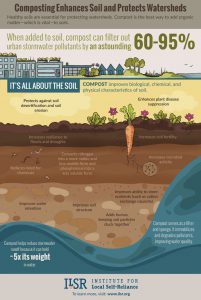Michael, Sarah Kate, Kunho, Sahir
Is Composting the Solution for Climate Change?
- Maximizes ability for plants to covert carbon dioxide into usable carbon in the plant and soil
- Helps climate that is being thrown off from burning fossil fuels
- Composting improves soil quality/structure

- This helps the soil retain more water and avoid erosion and stormwater runoff
- Soil becomes a filter/sponge that immobilizes and degrades
- Increases soil fertility
- Increases microbial activity – better crops
- Reduces need for chemicals
- Reduction of harmful pesticides, some of which impact the ozone
- Less pressure placed on improving fertilizers
- Creates jobs and stimulates the economy
- Manufacturing compost requires labor
- Can buy/sell compost
- Composting gives purpose to food waste
- Instead of food scraps rotting in land fills and producing methane (which contributes to global warming), when composted, the nutrients in food scraps can be put back into the environment
- Reduces amount of trash in land fills

